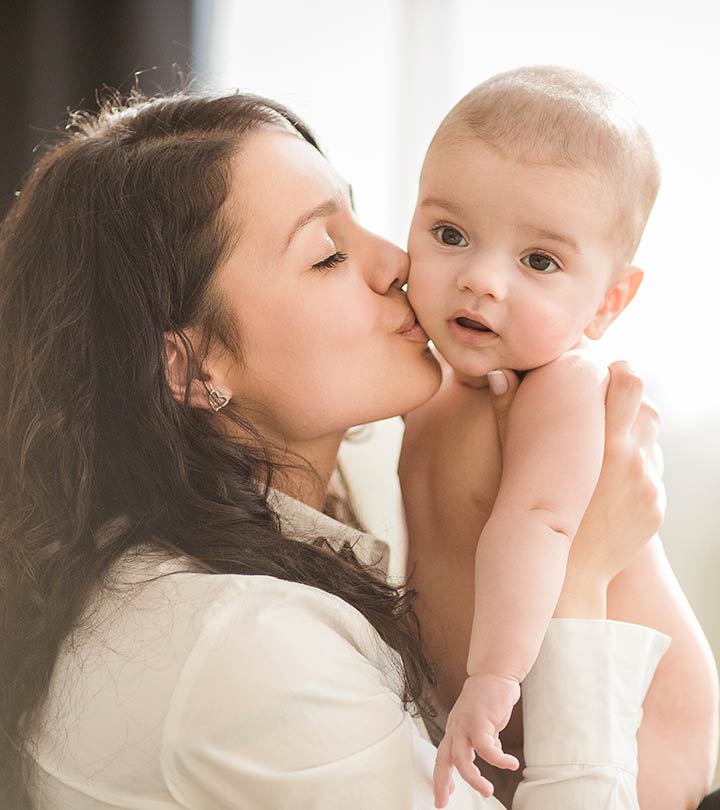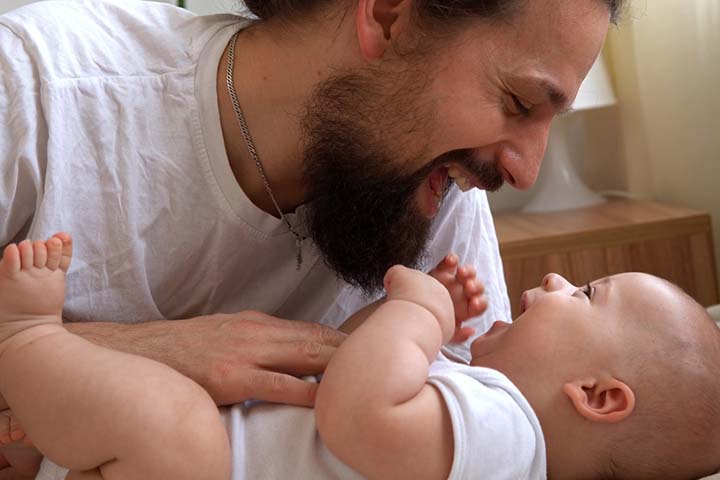As babies grow, you need to keep adapting to their development. For example, at two months, babies may start responding to sounds, recognize voices, seem interested in their hands and feet, try to grab objects, and make cooing or gurgling sounds. These adorable developmental milestones may want you to know more about effective ways of 2 months baby care to ensure their safety and all-round growth. In addition, babies usually need to be fed more frequently, sleep longer, and cry more at this age. Therefore, you need to identify these growth phases and avoid being extra worried for your little one. In this post, we share a list of useful tips to help you take good care of your 2-month-old.
2 Month Baby Care Tips
1. Fulfill Increased Feeding Requirements:
Your two-month-old baby may exhibit increasing signs of appetite and demand feedings often. Usually, infants cry when they are hungry. Try to identify their needs and feed them whenever you find them crying. If you have been breastfeeding and have been offering breast milk of only one breast, you may need to start offering both breasts to feed your infant. If bottle feeding, be sure to choose a formula that is appropriate for your baby’s age and needs, and always follow safe preparation and feeding practices. Your baby may also demand to feed even at night or midnight. Burping your baby after every feed can help prevent discomfort from gas and reduce the risk of colic (17).
2. Identify And Take Care Of Sleeping Times:
In the second month, infants tend to develop longer sleep periods. Watch the sleeping patterns of your growing infant. Your baby can sleep anywhere between one to three hours during the day. Also, your two-month-old may exhibit tired signs at the end of their feeds or a half an hour after their feed. Swaddling can help soothe a fussy or overstimulated baby and promote sleep, but be sure to follow safe sleep guidelines and never cover your baby’s face or restrict their movement. Total nine to twelve hours of sleep in 24 hours is normal for a two-month-old infant. So make sure your infant gets adequate sleep (1).
3. Attend To Your Baby When She Cries:
Two-month-old babies cry a lot, which can be distressing for you. Infants cry in the second month as the nervous system tends to mature, excitement due to stimulus, overtiredness, and for attention. Taking time to bond with your baby through skin-to-skin contact, talking, and cuddling can have numerous benefits for both parent and child, including improved mental health and attachment (18). So, whenever your baby cries, attend to your baby and give her all your attention. Cuddle her, soothe her, or take her outside to calm her. This is how you can do for a two month baby care (2).
4. Encourage Your Baby’s Development:
A two-month-old tends to develop better vision, grip and performs better hand and feet activities. Your baby tends to discover her hands and feet and keep them moving in the air. You can tie wrist rattles on your baby’s wrists and let them gaze at the color and sound of the rattle. Vision development occurs in the initial months of the birth, and you can encourage it with the help of colorful objects and soft toys (3).
5. Interact With Her:
In the second month, your baby responds to loud and sudden noises. Watch her coo and throw her hands around on hearing a loud noise. Talk with your dear little one. Speak simple words or rhyming words so that your baby will recognize them and respond to them (4).
Amber Marie Massey, a mother of three, talks about how her two-month-old baby boy is very social and loves interacting with everyone. She mentions, “This boy!! His little personality has exploded over the last month! Giant smiles, the happiest eyes, and he’s this close to letting out a little chuckle. He coos so loudly and screeches in excitement- he loves to be talked to, and the moment he locks eyes with you, the smiles start. Seriously, my most social baby ever (i).”
6. Keep Your Baby Safe:
Never leave your baby on her change mat or the floor without any supervision. If you have pets at home, keep your baby away from them. Make sure your baby has soft toys, which don’t have any sharp edges. Scan the place around your baby to ensure there is no sharp and harmful object lying around (5). Don’t forget to follow a recommended vaccination schedule that can help protect your baby from serious illnesses. If your baby shows signs of allergy or intolerance to certain foods or substances, talk to your pediatrician.
7. Keep A Track Of Immunizations And Overall Health:
According to the Centers for Disease Control and Prevention, immunization rates were found to be 81% among infants around the globe. Make sure you get your little one appropriately vaccinated. Take your baby to the doctor for regular health check-ups. Also, maintain clean and tidy surroundings so your baby won’t get infected. Your infant’s hygiene should be a priority (6).
Now that your baby is 2 months old, you may finally be able to predict their feeding and eating pattern. Further, your breastmilk supply may have adjusted to their needs. Also, now that your baby has begun responding to your call, you should interact more with them. 2-month baby care also includes ensuring their proper hygiene and safety so that they do not fall ill. Further, check with your pediatrician about their vaccination schedule and get them immunized on time to prevent diseases.
Key Pointers
- The first and most important step in taking care of a 2-month-old baby is to update their feeding requirements.
- Along with maintaining a proper diet, it is essential to keep them well hydrated and ensure they get ample rest.
- Keeping the baby clean and active is crucial to promote physical and mental development.
- Regular checkups with their doctor are necessary to ensure the child’s development is on track.
Learn about the important tips and safety precautions that you need to follow while caring for your newborn, explained to you by a medical professional













